Understanding how to use a planner for school is an essential skill in studying. Don’t believe me. Let me give you an example.
You are relaxing at home after a long day at school after freelancing as a writer. You kicked back on the couch with some snacks, watching your favorite Netflix show, when suddenly you recall something your teacher mentioned at the end of class today… That research paper is due tomorrow.
Your teacher has been talking about it for weeks so you knew it was coming. But you haven’t prepared at all and now you’ve got a 5-page paper due in the morning, and one of your sources has to be from a library!
Our brains aren’t built to remember everything at once. In fact, the more you try to remember in your head, the more cluttered and difficult to remember anything it becomes. You can avoid this by learning how to use a planner.
Table of Contents
Why Keep a Planner
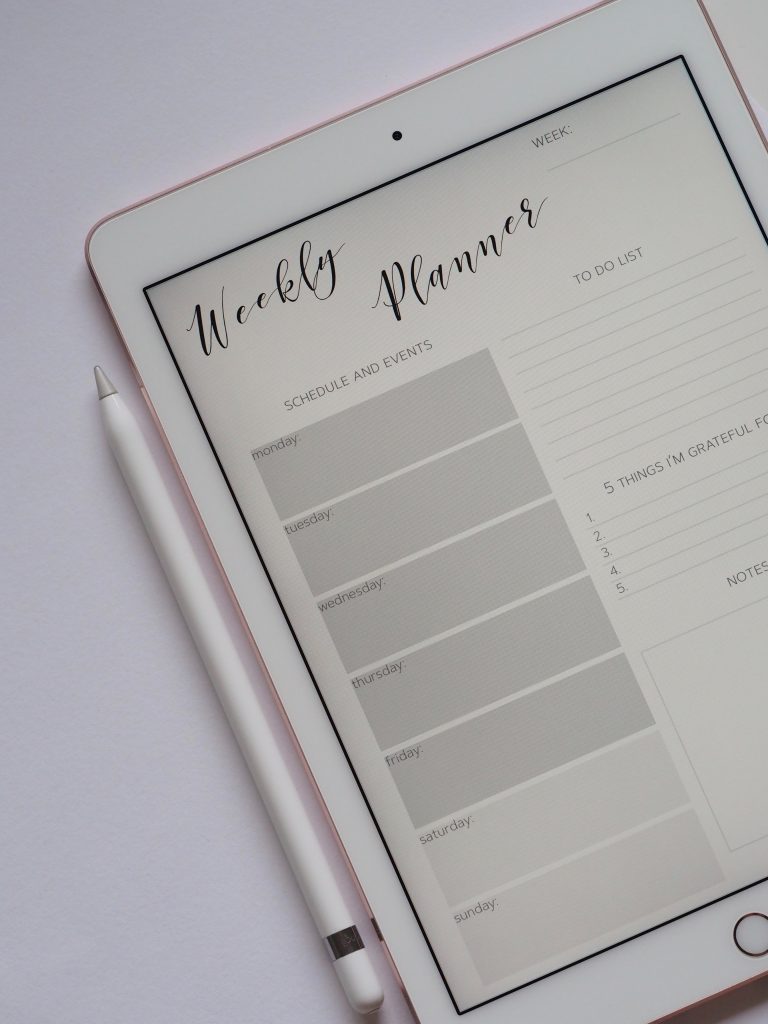
1. It improves productivity
Knowing how to use a planner will greatly help you to improve productivity especially if you are also working part-time on some of those jobs for high school. You will notice that you are finishing more tasks than usual because you are able to budget your time wisely.
However, using a planner will only be effective if you will really stick to it. We suggest that you read this article until the end to learn some tips on how you will become consistent in using your planner.
2. It helps manage time wisely
The main goal of having a planner is to track how you spend your time. Unlike guessing which task should be finished first, looking at your planner will reduce your stress because you will able to catch up with all your deadlines.
You’ll also have a lot of free time if you make sure that you are organized. Which leads us to the next benefit of keeping a planner.
3. You become more organized
Keeping a planner helps you to be more organized. By this, we mean that you are putting important things first instead of mindlessly spending your time browsing social media networking sites.
You are developing a routine by choosing to organize your tasks using a planner and this is a good thing especially if you are one of those students who are working while in high school.
4. It helps in tracking achievements
This is one of the more unnoticed effects of learning how to use a planner. By constantly writing the things you have to do in a week, you’ll get more motivated when you see the pattern that you are finishing all of them.
You’ll also be more diligent since you know you can finish all of your tasks.
5. It develops student responsibility
When you write all the things you need to accomplish in a planner, somehow, your responsibility as a student is also being instilled in you. Why? You realize that there are a lot of tasks that you need to do for each subject and all of them are making you smarter and prepared for your college admissions. You identify the areas of your life that you should focus on and you are making a difference.
Tips on How to Use a Planner
1. Choose the right planner for you
There are thousands of planners out there, but you want the one that works for you.
To make things a little easier, we created the Student Tutor Planner; A planner designed to help you track your own progress on assignments and break larger, stressful projects into less-intimidating baby steps.
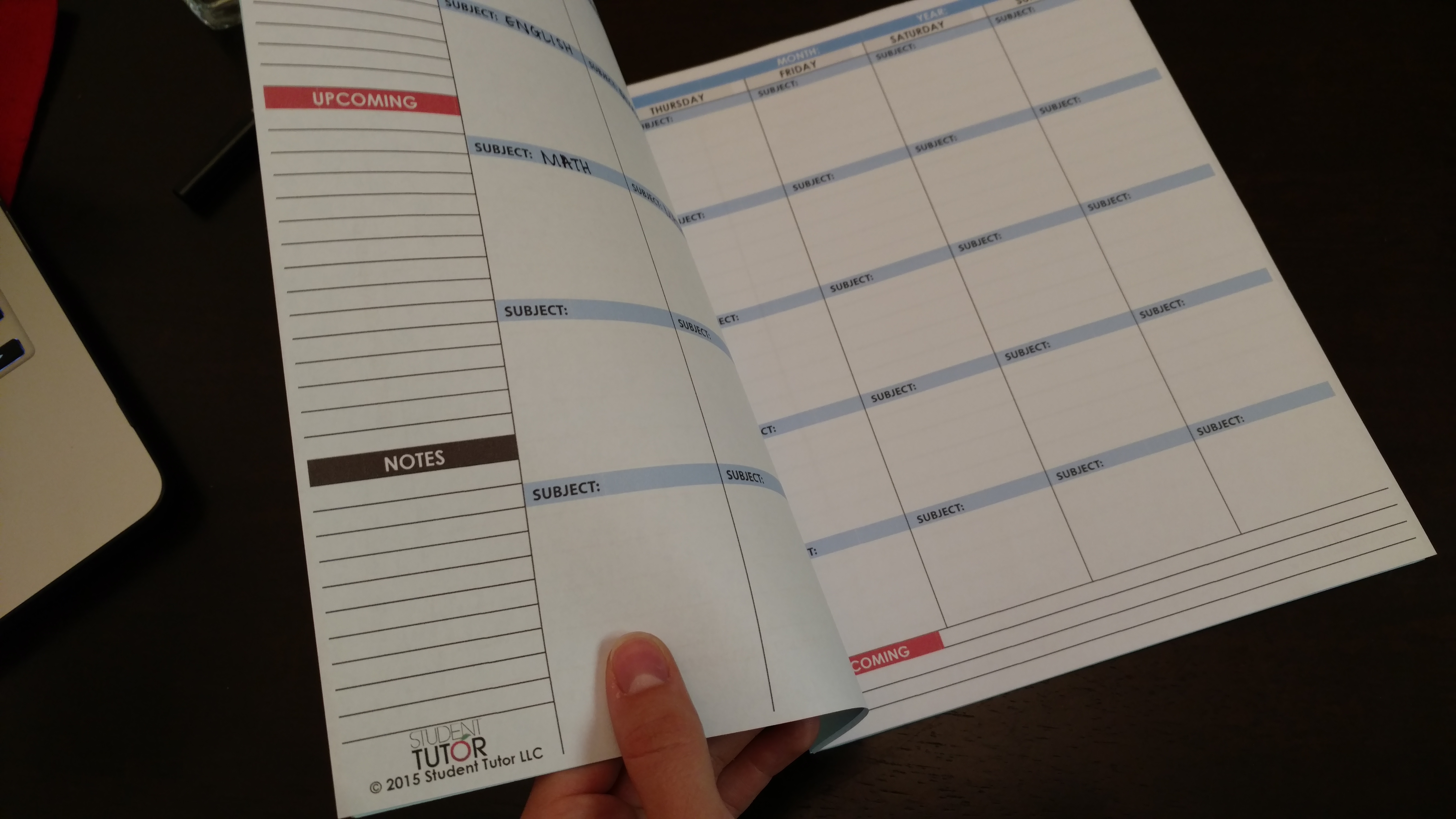
You can always purchase a separate planner if you like, but the Student Tutor Planner is completely free for your use at any time.
If you buy your own planner, they will usually come with the months and years already printed on them. The reason OUR planner does not is so that you can continue to reuse it for however many months and years you like!
One thing that you should do in every planner is to write down the name of each class you are taking. For our planner, fill in the space labeled “Subject.”
2. Fill in any permanent due dates
Most teachers in high school will give students a syllabus that may or may not list the due dates of some major projects. For example, an AP English course might require a “Final Paper” that is due on X day.
If your teacher doesn’t give you a syllabus for their class, follow these steps:
- Stay after school on the first day of class
- Have a pen and paper ready
- Ask your teacher if there are any specific due dates to keep in mind for class
- Take notes on what they say and transfer any solid dates to your planner
Whenever you know a date ahead of time, it is a good idea to put it in your planner. This is a habit that you can build to be successful for the rest of your life.
3. Write your assignments down daily
You know the drill — when a teacher has homework to assign, they’ll usually announce it during class. The MOMENT you hear of an assignment, you should mark it down in your planner for when it is due.
Pro-Tip: When you DON’T have homework for a class, write down “None”. By making sure that each class has something under its name, you can be sure that you’ve kept track of everything.
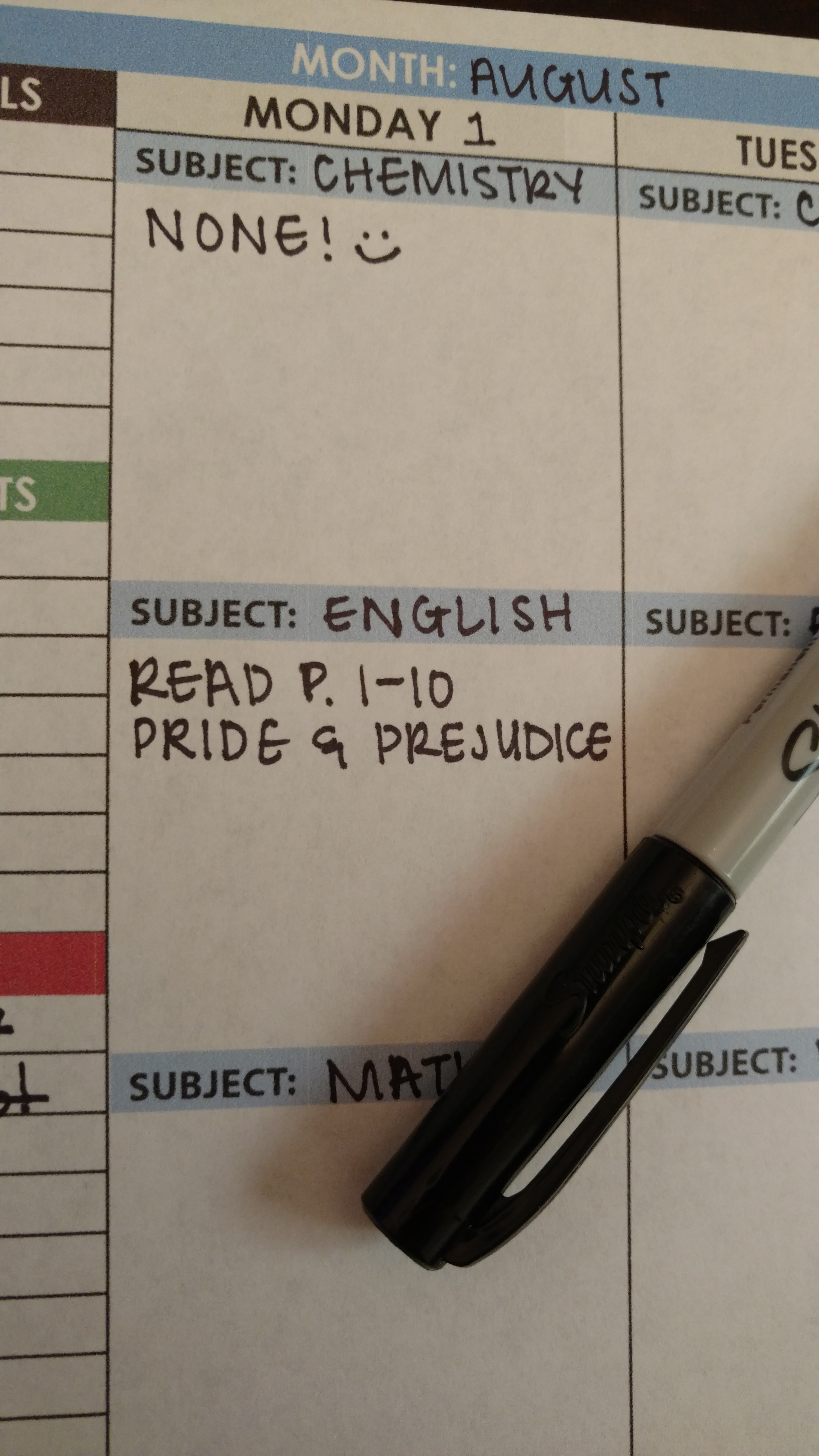
4. Set weekly goals and daily steps to reach them.
Each Monday, ask yourself:
- What do I want to achieve this week?
- How can I make that happen?
- What are the baby-steps I can take to reach my goal?
When you have your weekly goal, break it down even FURTHER. This will help you decide what daily steps you can take to reach it!
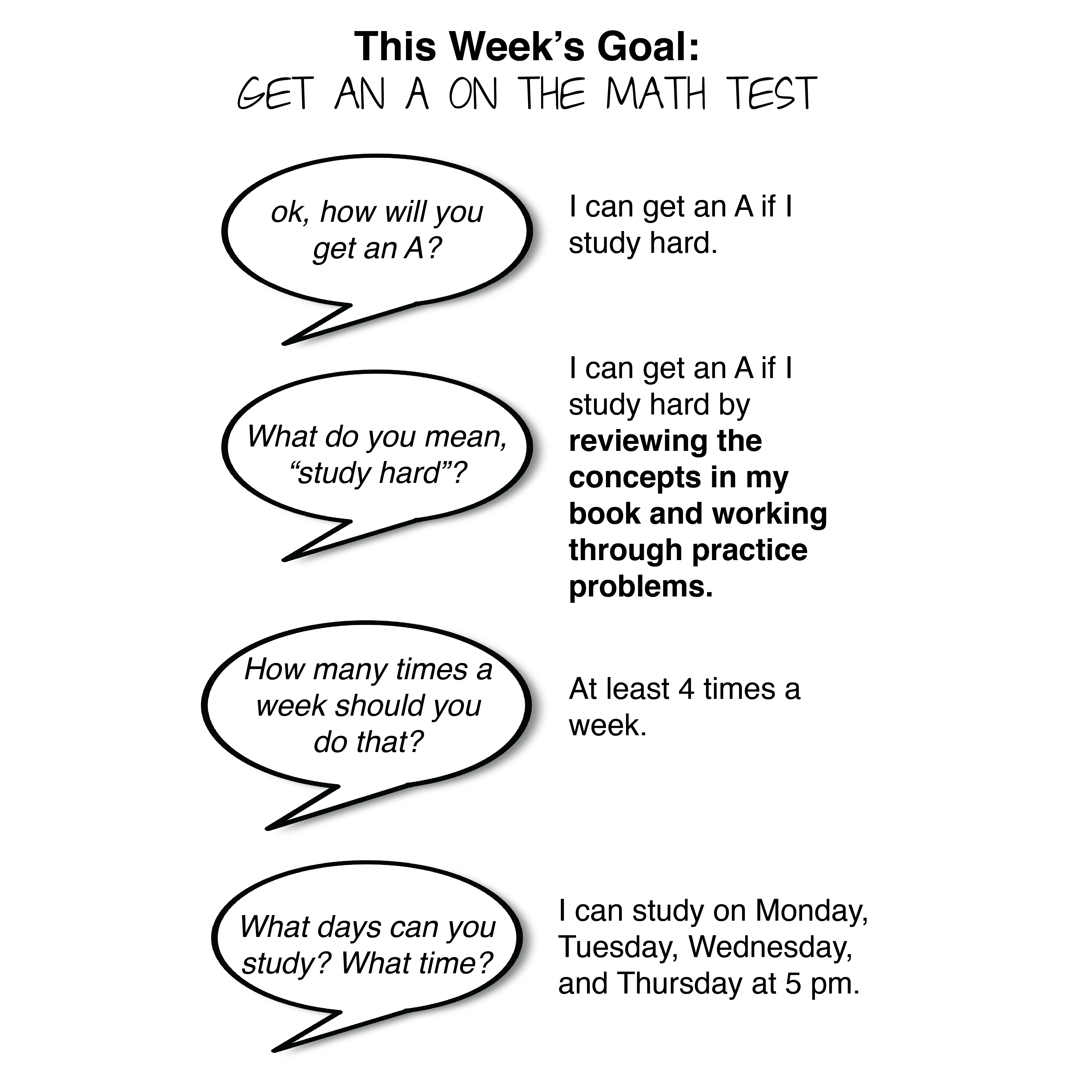
Fill these steps in to your planner so you remember to do them each day.
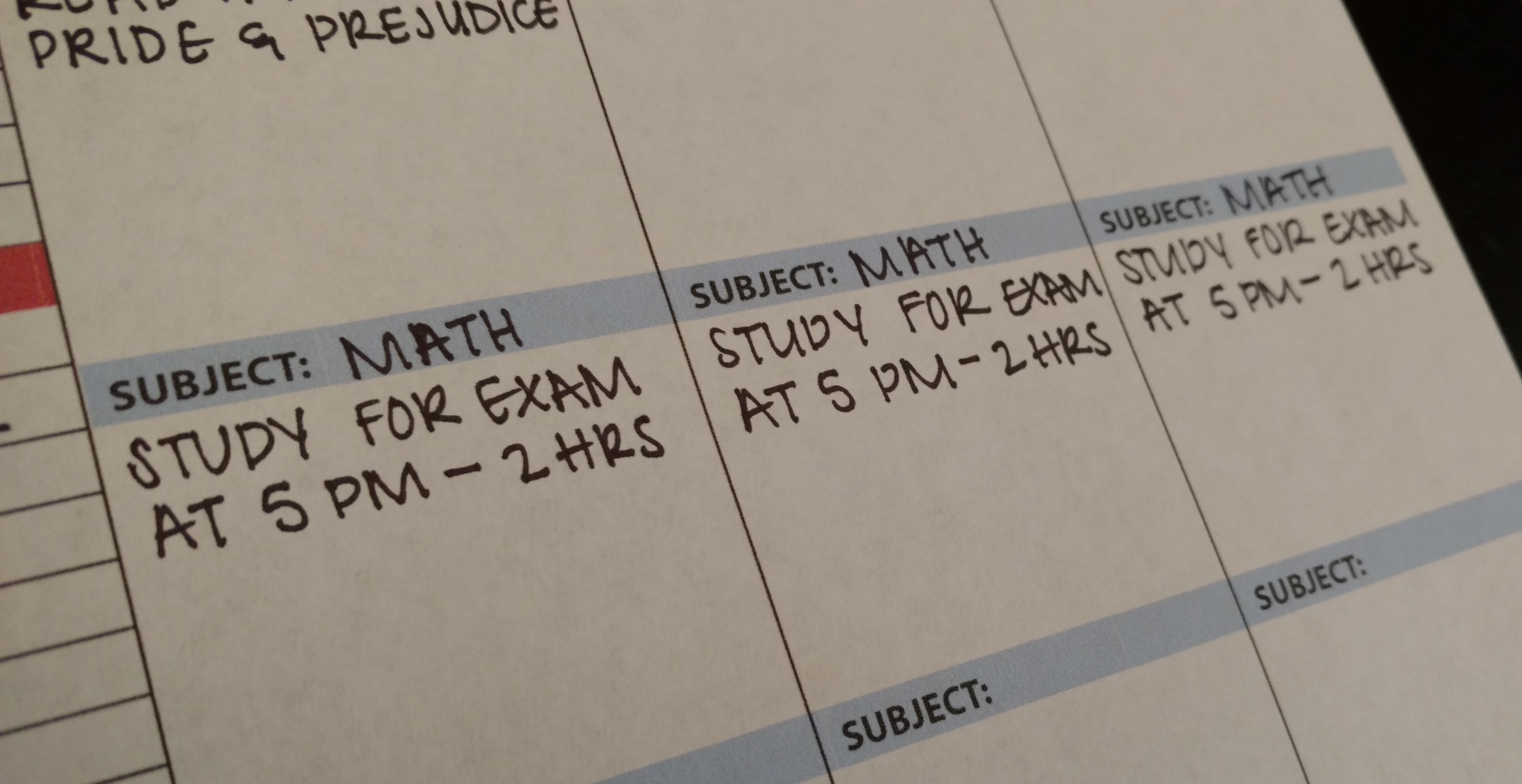
5. Keep track of upcoming assignments
If you have an Anatomy test on Monday of next week, seeing that first thing Monday morning when you check your planner may not help your case!
Don’t let tests or homework sneak up on you — note down when you have upcoming tests, quizzes, and assignments. This is especially helpful if your teacher hints that there may be a pop quiz!
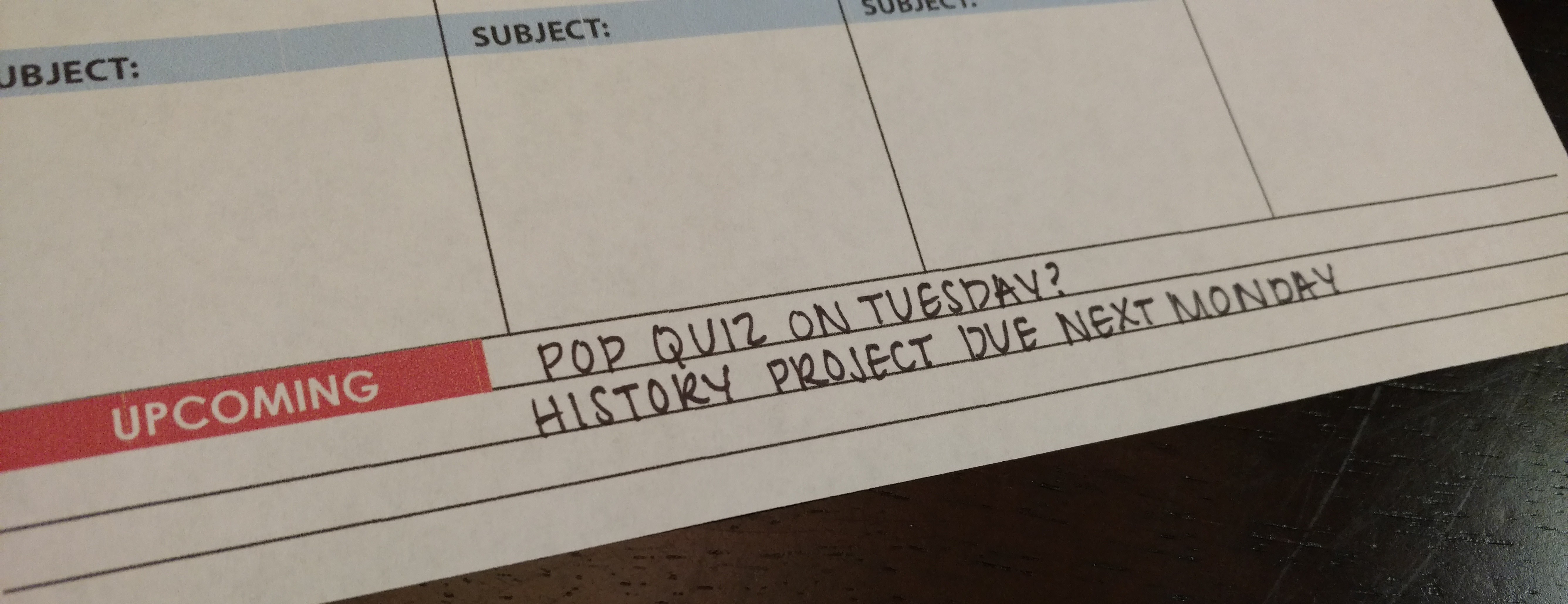
6. Practice time management
Remember how in step 4, we talked about being specific with the daily steps you take to reach your weekly goals?
This is something that can really benefit you in the long run. Try to ask these questions for every task you give yourself:
- When is the deadline for this?
- What are the baby steps I can take to help me complete it on time?
- How long should I spend on each step?
- When will I take these steps?
Create goals for yourself that are SMART.
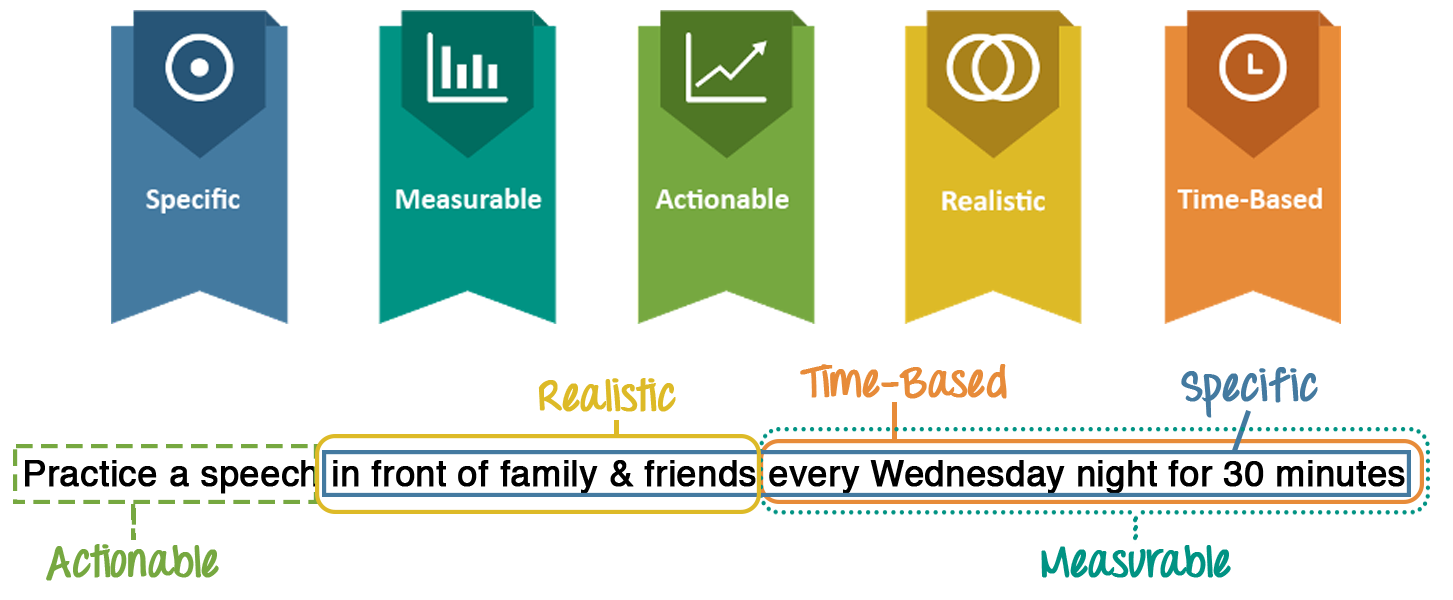
There is also a great time-tracking app for this called Toggl. It’s one of many different apps out there that you can use to see exactly how much time you’ve spent on something!
7. Keep it positive & Make it fun!
- Staying Positive
It’s important to recognize your own achievements, however small. Celebrating the completion of smaller steps towards a larger goal will help you feel better about the time you have spent, and will motivate you to continue.
That’s why our planner includes a section for “Achievements”.
It’s where you can highlight what things you are most proud of for the week.
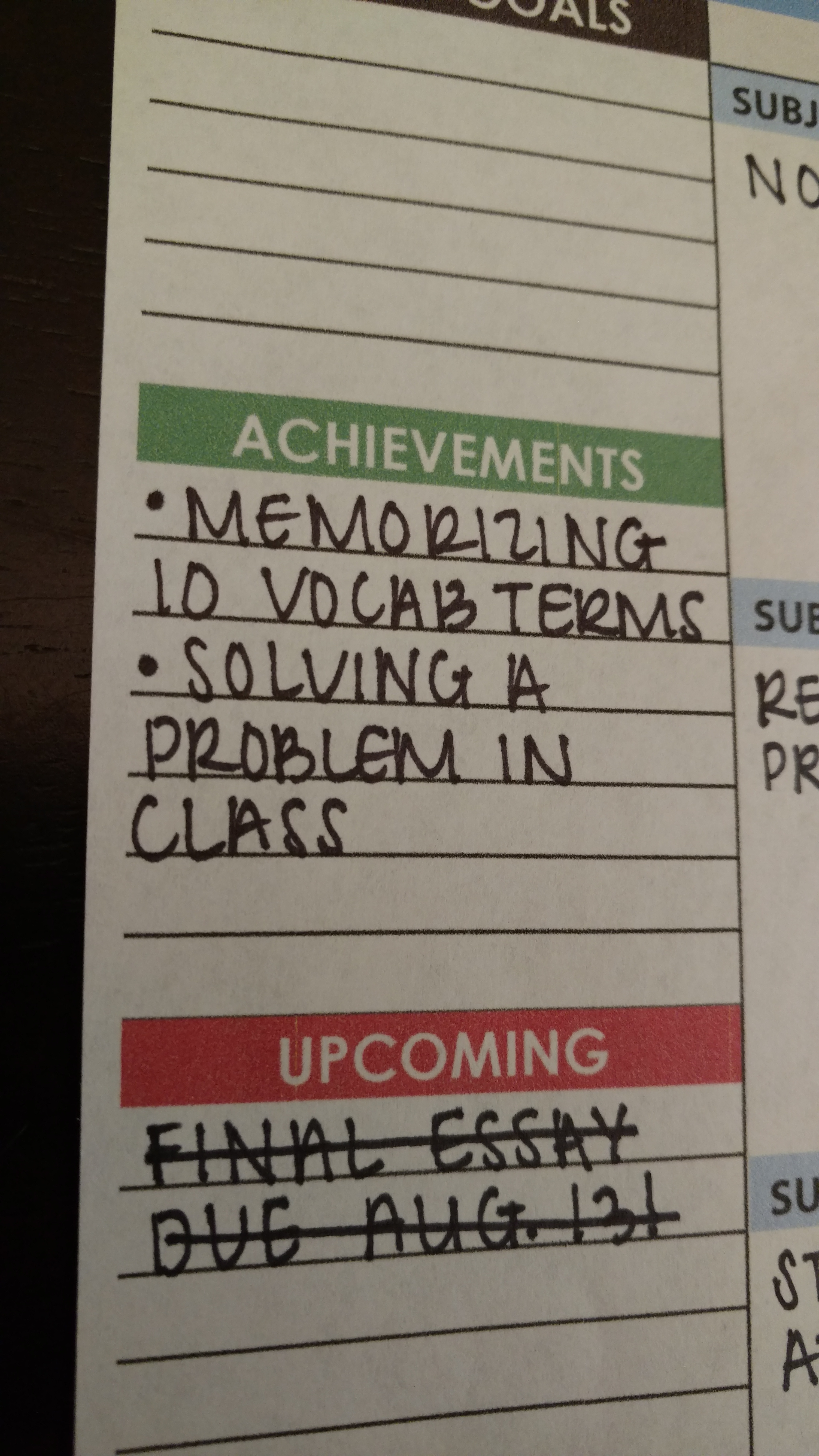
Another thing that you can do is cross out your assignments as you complete them. This will give you a sense of how many things you have left to do, and seeing that you have completed things will also make you feel better about being productive… and you should! 🙂
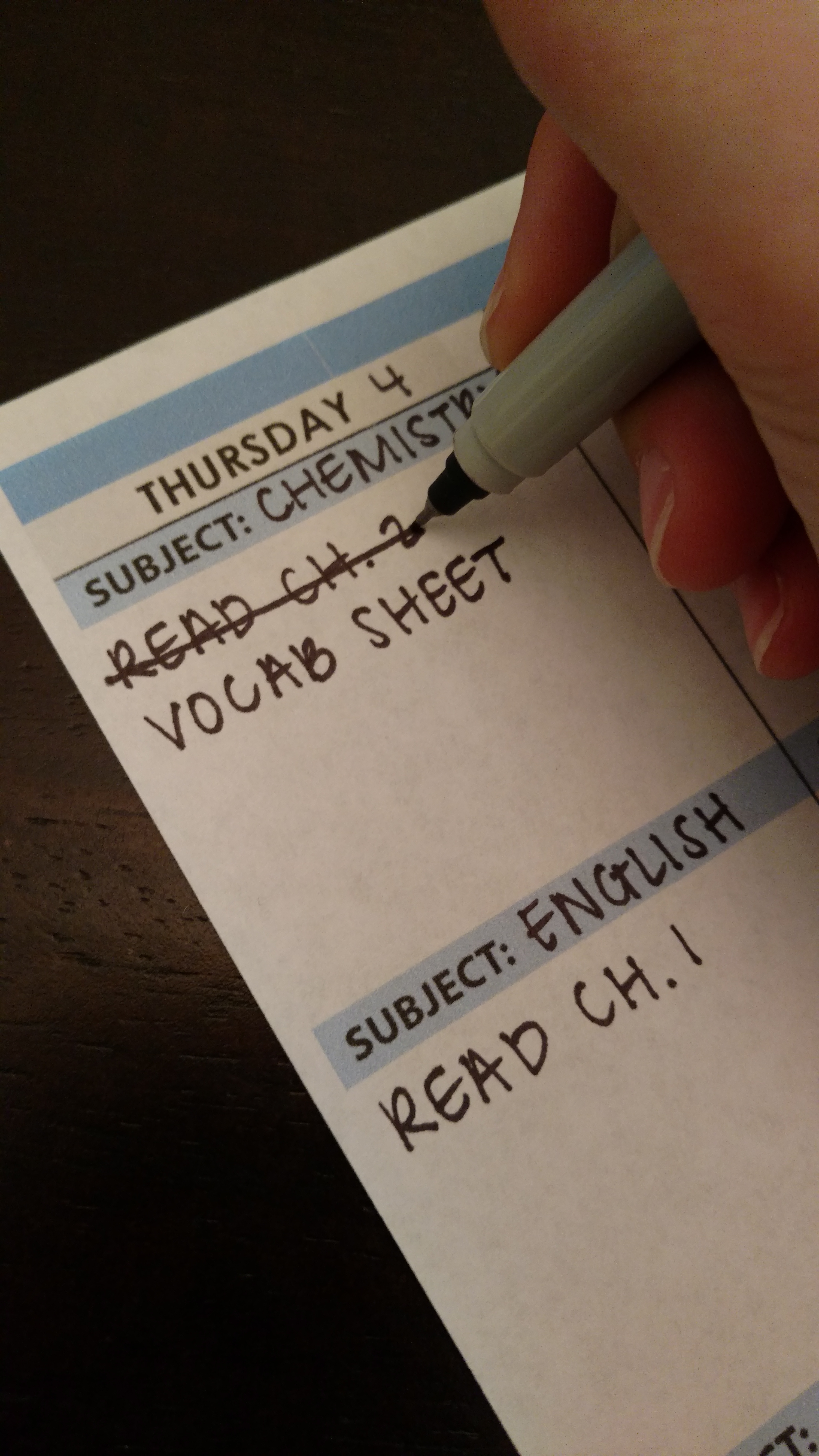
- Making organization fun
Staying organized doesn’t mean that everything has to fit into a boring little box.
Find ways to add style and color to your planner and really make it pop.
Ways on how to use a planner and customize it
- Use highlighters
- Draw pictures
- Add motivational quotes or notes
- Use sticky notes
Conclusion: How to use a planner successfully
Being organized and using a planner is like eating vegetables. It may be difficult or unappealing at first, but the more you do it the more you will start to experience the benefits.
Perhaps the number one benefit of being an organized and well-planned person is that it minimizes stress.
When you are trying to remember 10 things at once, mistakes will happen.
To review, here are the reasons why you should keep a planner:
- It improves productivity
- It helps manage time wisely
- You become more organized
- It helps in tracking achievements
- It develops student responsibility
Meanwhile, here are the steps for having the most successful planner were:
- Choose the right planner for you
- Fill in any permanent due dates
- Write your assignments down daily
- Set weekly goals and daily steps to reach them
- Keep track of upcoming assignments
- Practice time management
- Keep it positive & make it fun!
What do you think of our planner? Let us know in the comments below!
Todd VanDuzer
Latest posts by Todd VanDuzer (see all)
- Why Finding the Right Thing to Study Matters: Setting the Foundation for Success - July 26, 2023
- How USA Staff Onboarding Benefits From Innovative Software - July 26, 2023
- Top 7 Best Reasons to Get an MBA - June 7, 2023
- How to Support Your Child When They Go to College - April 29, 2023
- How to Maximize Your Job Search with Expert Resume Writers Experienced in Your Field - April 20, 2023

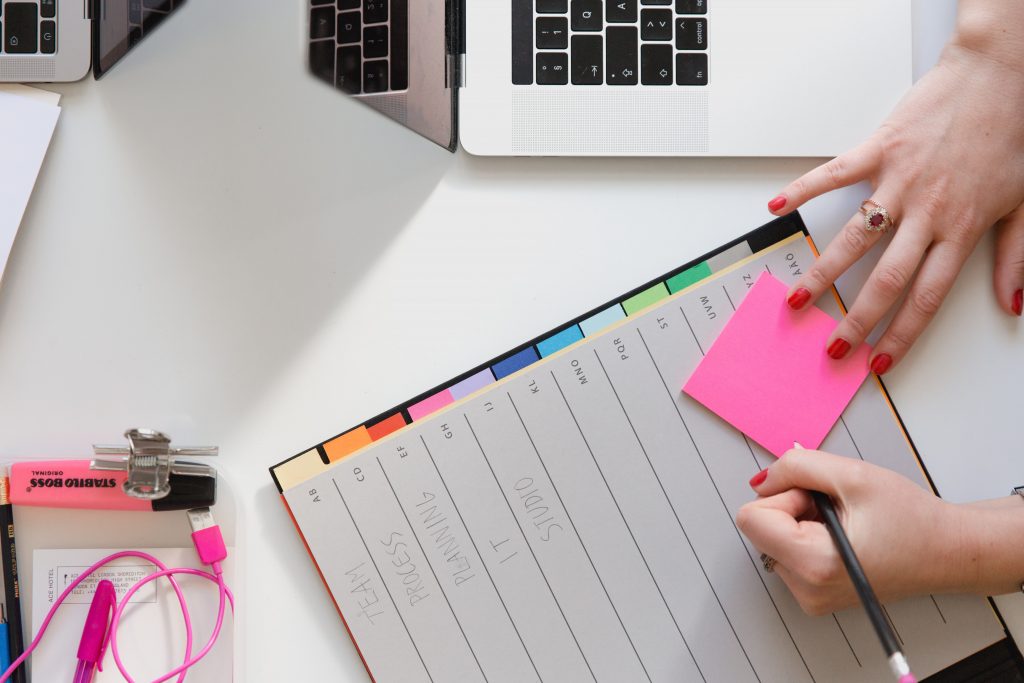
Hi, my name is Vickey and I am teaching my daughter how to utilized a planner. I enjoyed this article and the Huffpost article and sent them to her email. She will be a 6th grader this year and I know she would enjoy having this planner in particular. Are there any left over…2 years later lol.
Sorry for the late reply! We don’t have any for sale but you can print some off if you like using this link: https://student-tutor.com/wp-content/uploads/2015/03/Student-Tutor-Planner.pdf
This is a great planner for students. Great tips on use as well. Greatly appreciate it. Do you sell the planner as well.
Hi Prerna,
The planner is actually free for you! Were you able to access it through the links in the article?
This is great, thanks for sharing the planner tips!
You are more than welcome Lisa 🙂